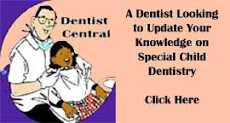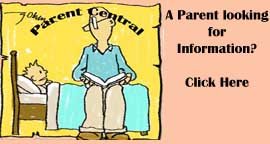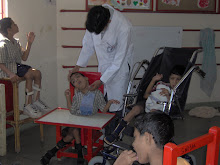Autism Symptoms vary widely in severity, include impairment in social interaction, fixation on inanimate objects, inability to communicate normally, and resistance to changes in daily routine. Characteristic traits include lack of eye contact, repetition of words or phrases, unmotivated tantrums, inability to express needs verbally, and insensitivity to pain.
Behaviors may change over time. Autistic children often have other disorders of brain function; about two thirds are mentally retarded; over one quarter develop seizures. Symptoms of autism can begin immediately after birth, but often parents begin to notice them when the child is between 12 and 18 months old. This is the age at which most infants begin to use language and show interest in social activities. A diagnosis of autism is usually made when the child is between 2 and 3 years, but new research is looking at ways to diagnose children as young as 12 to 14 months. Children with Asperger syndrome (one of five developmental disorders that represent the autism spectrum) may be diagnosed later because they do not have the same language or communication problems children with autism exhibit early on.
Some Common Signs Exhibited by Autistic Children
| Spinning | Repetitive behavior (perseverance) |
| No speech | Balancing, e.g. standing on a fence |
| Flapping hands | Behavior that is aggressive to others |
| Walking on tiptoes | Lack of interaction with other children |
| Lack of eye contact | Extreme dislike of touching certain textures |
| Self-injurious behavior | Desire to keep objects in a certain physical pattern |
| Lack of interest in toys | Desire to follow set patterns of behavior/Interaction |
| Dislike of being touched | Treating other people as if they were inanimate objects |
| Non-speech vocalizations | Delayed echolalia: repeating something heard at an earlier time |
| Preoccupation with hands | Confusion between the pronouns "I" and "You" |
| Lack of response to people | Echolalia: speech consisting of literally repeating something heard |
| Extreme dislike of certain foods | Either extremely passive behavior or extremely nervous, activebehavior |
| Delayed development of speech | When picked up, offering no "help" ("feels like lifting a sack of potatoes") |
| Extreme dislike of certain sounds | "Islets of competence", areas where the child has normal or even advanced competence. Typical examples include drawing skill, musical skill, arithmetic, calendar arithmetic, memory skills, perfect pitch |








No comments:
Post a Comment